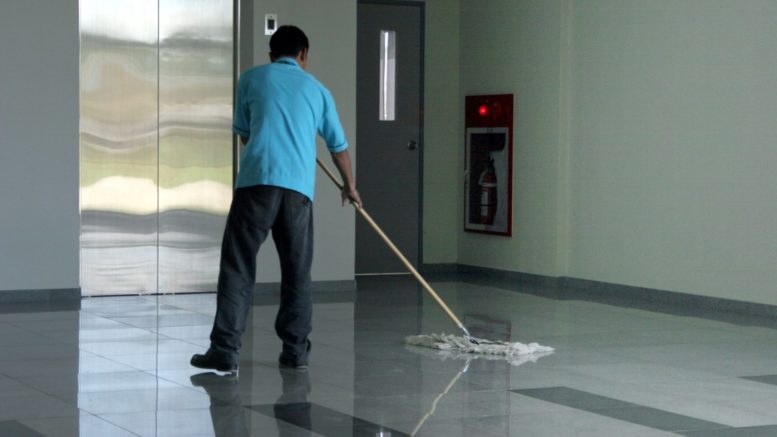Environmental services personnel are a critical first line of defense against the spread of COVID-19. In a new commentary published in Annals of Internal Medicine, authors from Harvard Medical School, Boston, and Cambridge Health Alliance discuss the importance of environmental cleaning during the pandemic and the essential role of environmental services personnel in patient safety.
As Kevin Tyan, BA, and Pieter A. Cohen, MD, observe, "These staff perform the arduous tasks of wiping down beds, cleaning bathrooms, and decontaminating hospital equipment. They are the unnoticed sinews of a well-functioning hospital. These essential personnel are still often called “housekeepers” — a relic from a time when their role was regarded as purely janitorial rather than fundamental to patient safety. In the face of this pandemic, they are among the unsung heroes, the critical first line of defense against infection.Yet their task of hospital cleaning and their stature in the healthcare hierarchy have long been underappreciated. This is despite extensive evidence that environmental contamination places patients and healthcare personnel at risk for life-threatening disease. When a hospitalized patient suffers an infection, the next patient to occupy their room has a 6-fold greater risk of acquiring the same pathogen. In intensive care units, dirty objects and failure to remove surface bioburden correlate with increased acquisition of infections. Across hospital systems, cost-cutting to reduce EVS staff and cleaning hours has been associated with increased nosocomial infections. In light of evidence that severe acute respiratory syndrome coronavirus 2 (SARS-CoV-2) can survive on surfaces for up to three days, along with studies demonstrating that viral shedding contaminates over 80 percent of the interior of hospital rooms and aerosolization of SARS-CoV-2 causes extensive surface contamination, it is now more urgent than ever to emphasize the importance of environmental cleaning.
The add, "Unfortunately, EVS personnel have been a target for cost-cutting since the mid 1990s. Cleaning staff have been whittled down by 25 percent during this time, and more than one-third of hospitals have disbanded their own EVS teams to outsource this work to contractors, shedding valuable institutional experience while exacerbating high turnover and inadequate training. Some new hires receive only three days of training, forcing 83 percent of EVS staff to train new recruits on the job, furthering the notion that their work is menial and unskilled rather than vital to patient outcomes. Meanwhile, stagnant low wages condemn over three quarters of workers below the poverty line. A recent analysis found that 30.5 percent of health workers at risk for poor COVID-19 outcomes lack paid sick leave, and support workers remain uninsured at rates above the national average. It is no accident that many EVS workers feel invisible to the rest of the hospital team—they are systemically devalued, ignored, and relegated to the bottom of the socioeconomic hierarchy."
To read the full text, CLICK HERE.

12995 768801Oh my goodness! an incredible write-up dude. Thank you Nonetheless Im experiencing challenge with ur rss . Don know why Unable to subscribe to it. Is there anyone obtaining comparable rss drawback? Anybody who knows kindly respond. Thnkx 148036